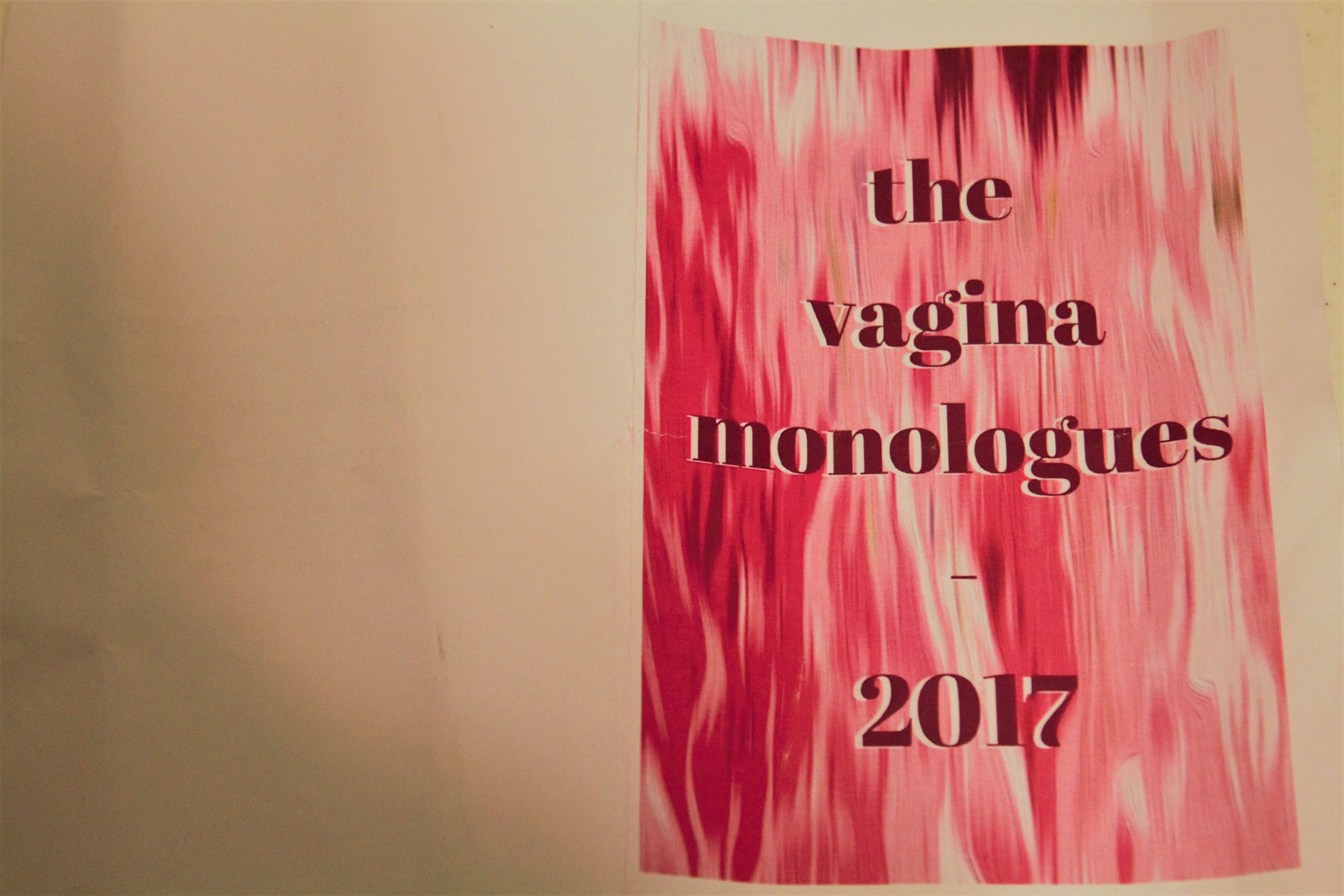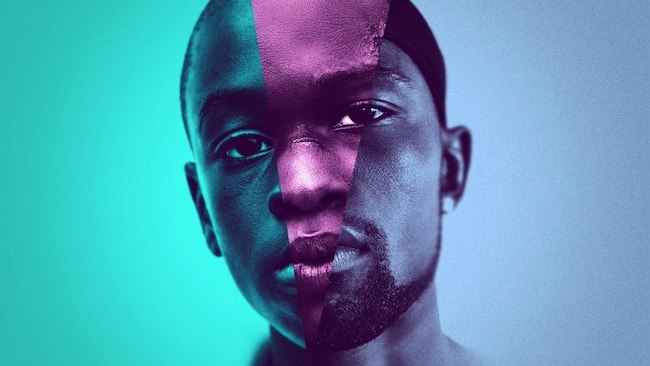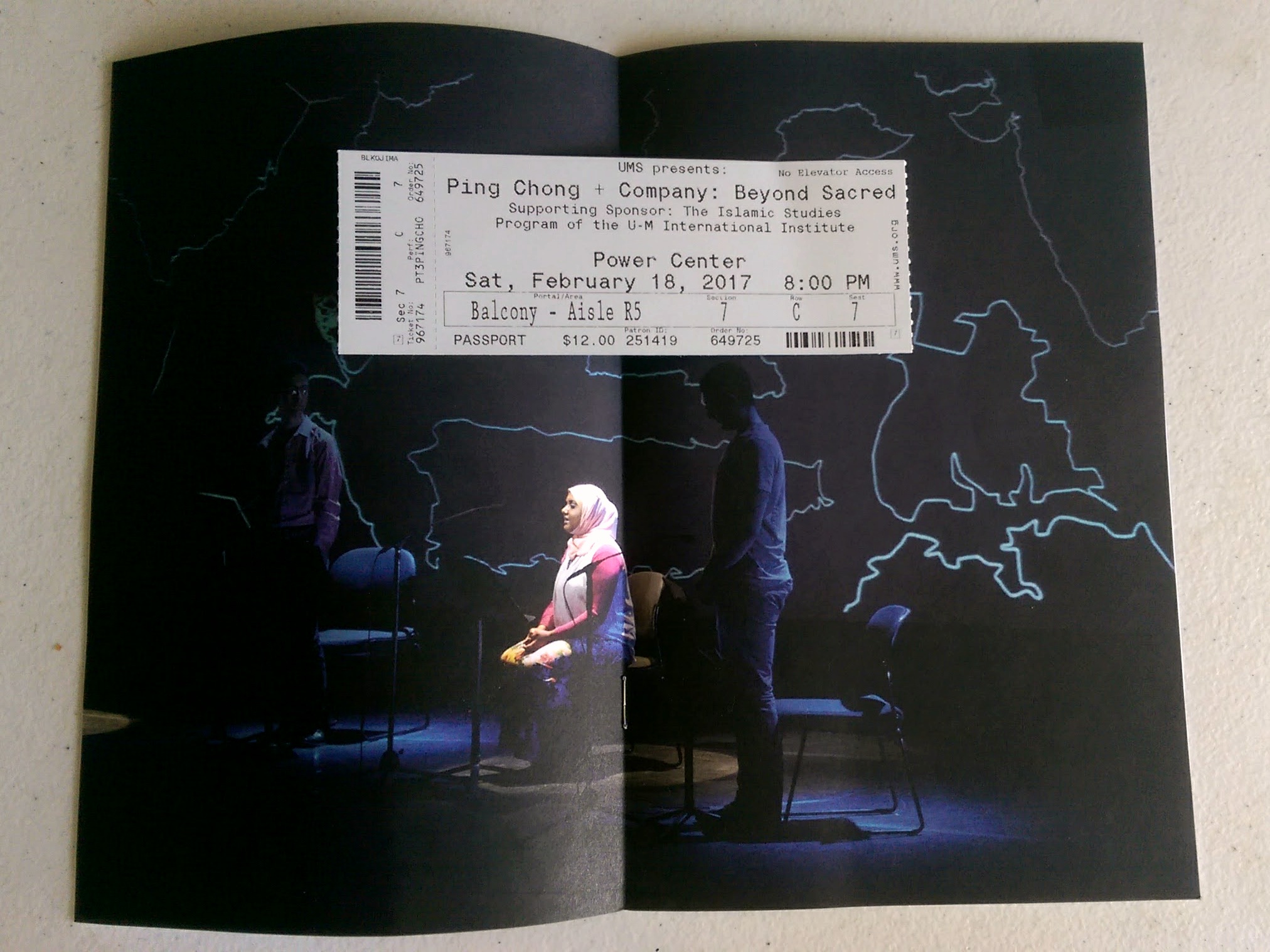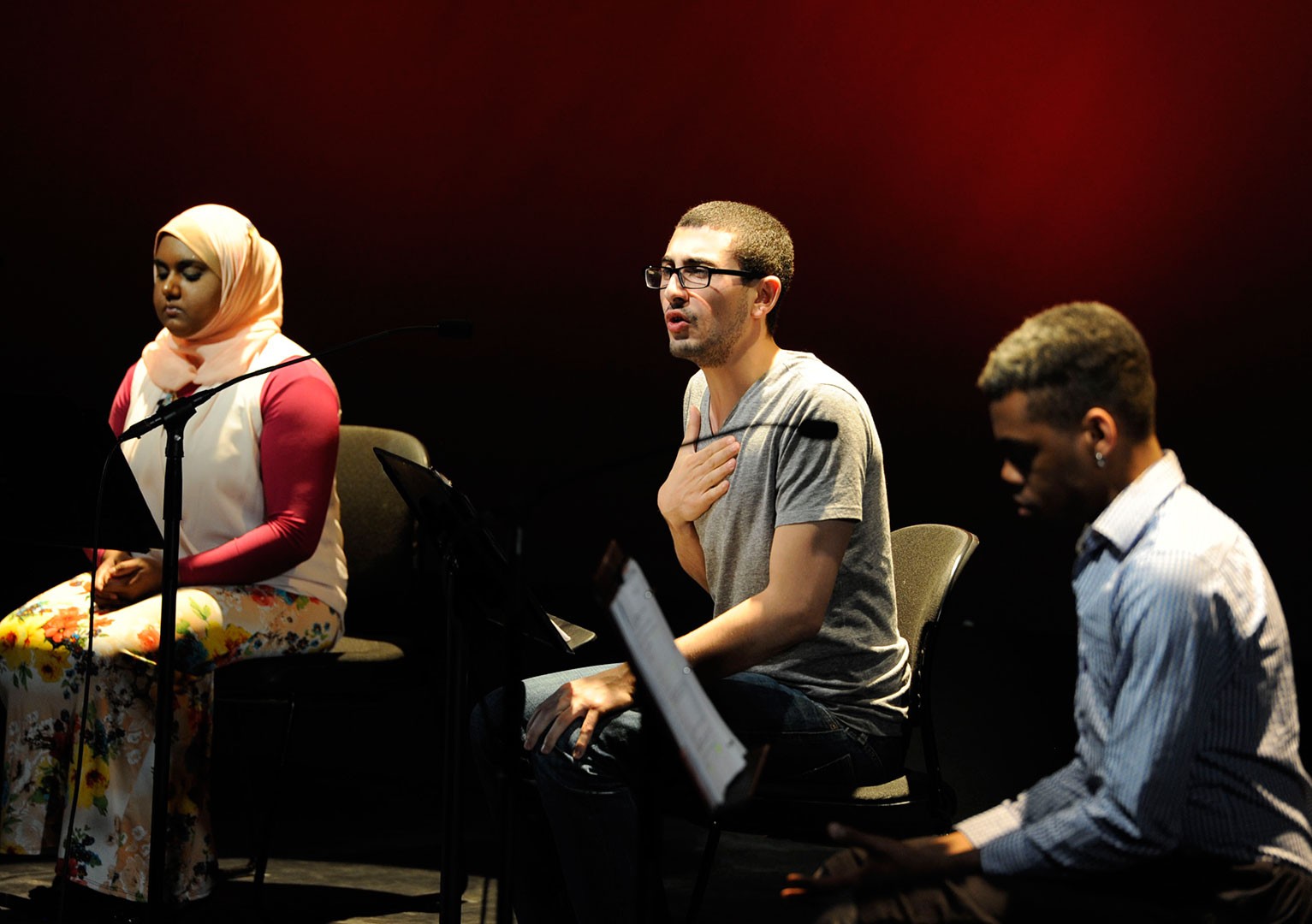By the start of Saturday’s show, the Vagina Monologues had raised over $2,500 for Safe House, which was wonderful to hear. There were far more women than men in the audience–either it was the subject material, or maybe it was because the men were too busy watching the latest NCAA Tournament game.
The show was split into two halves: the first half consisted of students on campus telling their stories, and the second half a rendition of Eve Ensler’s play of the same name. Out of respect for the women in the first half, I won’t post any quotes or pictures. Instead, a checklist of things I gathered:
- Found out what the clitoris is
- That virginity is a social construct meant to control women
- PCOS (polycistic ovary syndrome) makes you have irregular periods, and makes it really hard to lose weight
- There is a huge lack of women and diversity in Hollywood (duh)
- Don’t spray perfume up your vagina!
- Just because you enjoy Anime doesn’t mean you have yellow fever (probably)
- Don’t hook up with girls and then refuse to date them
- Don’t refuse to take girls out to eat, but then offer to eat them out later
- No means no.
The second half–Eve Ensler’s The Vagina Monologues–was in a way more concise than the previous monologues. This was partly due to the fact that each monologue was actually from a compendium of interviews Ms. Ensler had conducted with over 200 women in preparation for the play.
Some stories were raunchier than others, some were funny and some were so serious that the Rackham Amphitheater got so quiet you could hear the breaths of the people in the audience.
One women said the word cunt, and then kept repeating cunt, as well as words that were related and/or sounded like cunt.
Another woman was obsessed with making other women happy, so she stopped being a lawyer to become a sex worker that worked only for women. She was a dominatrix that loved hearing women moan, and the audience received quite the description of the different moans she had heard from various women.
There was only one moment when I felt the urge to “man-splain” something. Regarding Pap smears, one woman wondered aloud why she had to wear a papery apron instead of a velvet robe, and why they used such uncomfortable instruments rather than something else more pleasurable. If Pap smears were like that, the hospital bill would probably be a lot higher than it currently is for the procedure. But alas, I am a graduate student in a physiology program, so medical things stand out to me.
Overall, the Vagina Monologues is a worthwhile event to go to, especially if you are a man. Although not as provocative as it might have been in a more conservative town, the Vagina Monologues is still a raunchy, R-rated show that can help you expand your horizons if you let it.







